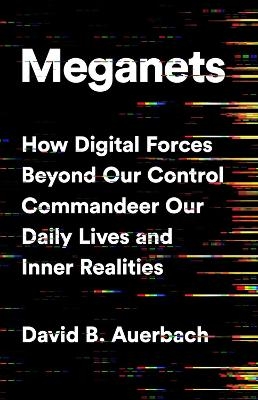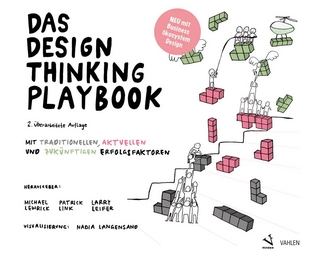
Meganets
PublicAffairs,U.S. (Verlag)
978-1-5417-7444-5 (ISBN)
David Auerbach's exploration of the phenomenon he has identified as the meganet begins with a simple, startling revelation: There is no hand on the tiller of some of the largest global digital forces that influence our daily lives: from corporate sites such as Facebook, Amazon, Google, YouTube, Instagram, and Reddit to the burgeoning metaverse encompassing cryptocurrencies and online gaming to government systems such as China's Social Credit System and India's Aadhaar.
As we increasingly integrate our society, culture and politics within a hyper-networked fabric, Auerbach explains how the interactions of billions of people with unfathomably large online networks have produced a new sort of beast: ever-changing systems that operate beyond the control of the individuals, companies, and governments that created them.
Meganets, Auerbach explains, have a life of their own, actively resisting attempts to control them as they accumulate data and produce spontaneous, unexpected social groups and uprisings that could not have even existed twenty years ago. And they constantly modify themselves in response to user behavior, resulting in collectively authored algorithms none of us intend or control. These enormous invisible organisms exerting great force on our lives are the new minds of the world, increasingly commandeering our daily lives and inner realities.
Auerbach's analysis of these gargantuan opaque digital forces yield important insights such as:
- The conventional wisdom that the Googles and Facebook of this world are tightly run algorithmic entities is a myth. No one is really in control.
- The efforts at reform - to get lies and misinformation off meganets - run into a brick wall because the companies and executives who run them are trapped by the persistent, evolving, and opaque systems they have created.
- Bitcoin and other cryptocurrencies are uncontrollable and their embrace by elite financial institutions threatens the entire economy
- We are asking the wrong questions in assuming that if only the Facebooks of this world could be better regulated or broken up that they would be better, more ethical citizens
- Why questions such as making algorithms fair and bias-free and whether AI can be a tool for good or evil are wrong and misinformed
Auerbach then comes full circle, showing that while we cannot ultimately control meganets we can tame them through the counterintuitive measures he describes in detail.
David B. Auerbach is a writer, technologist, and software engineer who worked Google and Microsoft after graduating from Yale University. His writing has appeared in the Times Literary Supplement, MIT Technology Review, The Nation, n+1, Tablet, The Daily Beast, and Bookforum, among many other publications. He was Slate's technology columnist from 2013 to 2016, and he was nominated for a National Magazine Award for his coverage of the HealthCare.gov hearings. He teaches on the history of computation at the New Centre for Research and Practice and is a frequent guest at their events. He has lectured around the world on technology, literature, and philosophy and, in addition has done scholarly research on James Joyce, William Shakespeare, and artificial intelligence. His first book, Bitwise: A Life in Code, was published by Pantheon in 2018.
| Erscheinungsdatum | 01.03.2023 |
|---|---|
| Zusatzinfo | 5 B/W illustrations |
| Sprache | englisch |
| Maße | 160 x 238 mm |
| Gewicht | 540 g |
| Themenwelt | Informatik ► Software Entwicklung ► User Interfaces (HCI) |
| Informatik ► Theorie / Studium ► Künstliche Intelligenz / Robotik | |
| Wirtschaft ► Betriebswirtschaft / Management ► Unternehmensführung / Management | |
| ISBN-10 | 1-5417-7444-2 / 1541774442 |
| ISBN-13 | 978-1-5417-7444-5 / 9781541774445 |
| Zustand | Neuware |
| Informationen gemäß Produktsicherheitsverordnung (GPSR) | |
| Haben Sie eine Frage zum Produkt? |
aus dem Bereich


